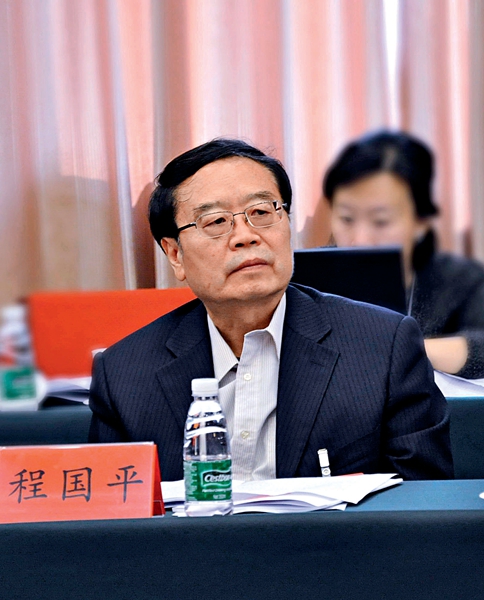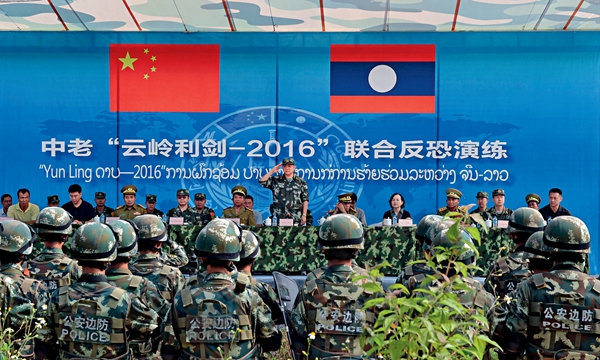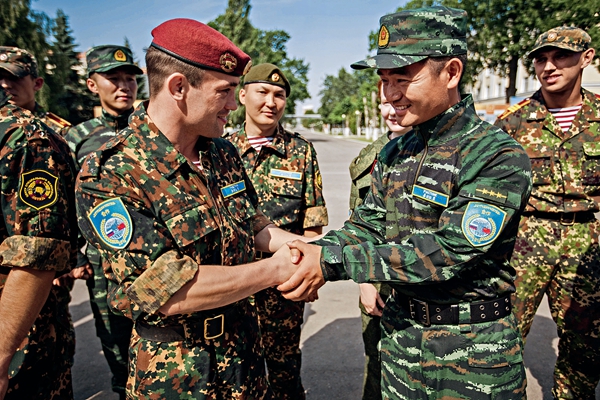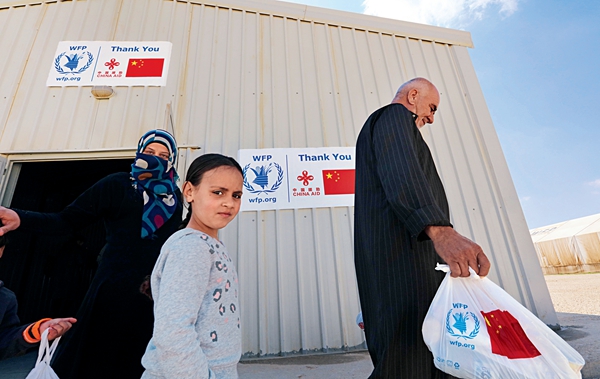By staff reporter DANG XIAOFEI
By staff reporter DANG XIAOFEI
2016 witnessed more major terrorist attacks around the globe, some of which killed and injured 100 or more people. Many countries, including China, face the threat of terrorism. When delivering his Report on the Work of the Government in March 2017, Premier Li Keqiang outlined the tasks and goals of national defense, and emphasized the importance of counterterrorism in safeguarding stability.

During the annual meetings of the National People’s Congress (NPC) and the Chinese People’s Political Consultative Conference (CPPCC), which concluded in March, China Today had an exclusive interview with Cheng Guoping, State Commissioner for Counter-Terrorism and Security Matters of China.
Cheng is an anti-terrorism expert and veteran diplomat. His previous posts include director-general of the Department of European and Central Asian Affairs of the Ministry of Foreign Affairs, China’s ambassador to the Republic of Kazakhstan, and vice minister of foreign affairs. Cheng is one of the two State Commissioners for Counter-Terrorism and Security Matters of China.
Grim State of Affairs
The Islamic State (ISIS) has carried out terror attacks in the French town of Nice, and in Brussels, Belgium. The Russian Ambassador to Turkey was shot dead in the capital city of Ankara, and a suicide bombing killed hundreds of people south of Baghdad, the Iraqi capital. Such attacks were frequent in 2016.
Since the beginning of 2017, the fight against terrorism in Syria and Iran has entered a new phase. Pakistan and Afghanistan have both suffered relentless large-scale terror attacks.

“The global political and economic pattern is now in a transitional phase, and the counter-terrorism situation remains grim,” Cheng said. Extremist and terrorist groups have taken advantage of the chaos in the Middle East to expand their influence, he added.
“Beyond the phenomenon where terrorist groups utilize religious beliefs to instigate more terror attacks and expand their organizations are the war games of big countries, evident in geopolitical strategies and the wrangles between various political forces,” Cheng said.
Under such circumstances, extremist and terrorist groups have constantly adjusted their strategies and organizations. Cheng expounded on this fact by recalling that Iraq and Syria were formerly the two main battlefields for extremist terror attacks. Since being crushed there, however, these extremist groups have moved on and penetrated other regions. Some terrorists have returned to their home countries; others have migrated to countries in Europe. This is at the root of the terror attacks which occured in Europe between late 2016 and early 2017.
China must also combat the growing threat of terrorism. The fight against the East Turkestan Islamic Movement (ETIM) has long been foremost on China’s anti-terror agenda. The ETIM foments disunion among the country’s ethnic groups, and is responsible for several terror attacks in China, especially in Xinjiang Uygur Autonomous Region. It has thus threatened national stability as well as people’s lives and property.

“In addition to cracking down on ETIM terror attacks carried out within its borders, China has also enhanced cooperation with countries throughout the world in fighting the ETIM,” Cheng said. “The ETIM has now merged with other international extremist groups, large numbers of its members having entered Syria incognito to join local terrorists. They jeopardize the safety and interests of Syria, and also constitute an indirect menace to China.”
China has made considerable headway in dealing with the ETIM. “However, we must be prepared at all times for unexpected developments,” Cheng said. President Xi Jinping steadfastly enforces counter-terrorism, and has issued many instructions on fighting the ETIM. China’s first counter-terrorism law came into effect on January 1, 2016.
Cheng’s response to certain reports of extremist and terrorist groups’ intentions to move from the Middle East to China’s neighboring regions of Central Asia, South Asia, or even Southeast Asia is that the country will keep close tabs on any such trend. This is crucial, as it has a direct impact on the security of Northwest China’s border areas, the stability and development of Xinjiang, and China’s comprehensive development at this critical phase.
Enhancing International Cooperation
Terrorism is now spreading to all corners of the world. Every country, including China, is involved in the fight against it.
As a responsible country, China’s focus is on both the fight against terrorism within its borders and international cooperation in this regard. So far it has established anti-terror cooperation mechanisms and launched relevant practical cooperation with over 10 countries. These joint efforts have played a vital role in safeguarding world peace and stability and promoting economic and security cooperation between China and its neighbors. China has moreover participated in multilateral cooperation mechanisms with the UN, the Shanghai Cooperation Organization (SCO) and the Global Counterterrorism Forum.

Under the framework of the UN, China has been proactive in negotiations to resolve the Syria crisis. “China advocates resolving the Syria crisis through political consultation, on the basis of cracking down on terror activities,” Cheng said. China has given humanitarian aid to Syria to the tune of RMB 480 million, according to Cheng.
Under the framework of the SCO, China has enhanced anti-terror cooperation with relevant parties in various forms. For example, China has provided assistance to such nations by carrying out military exercises in a bid to help them hone their capability to combat terrorism.
Under bilateral frameworks, China has enhanced its cooperation with relevant countries, especially neighboring nations, on counter-terrorism. Take Afghanistan as an example. China helped the country strengthen its law enforcement and anti-terrorism capabilities in efforts to guarantee local stability and safety. China also invited neighboring countries Tajikistan and Pakistan join in its cooperation with Afghanistan. The armed forces of Afghanistan, China, Pakistan, and Tajikistan have since formed a counter-terrorism cooperation mechanism. Its inaugural meeting convened in 2016.
When talking about future international cooperation on counter-terrorism, Cheng said that besides making full use of the current cooperation mechanisms, China plans to work with its neighboring countries to build an all-round security cooperation network. “We should focus on promoting China’s cooperation with its neighbors in various fields, especially counter-terrorism,” he added.
No “Double Standards”
In facing the threat of international terrorism, it has become the trend for countries around the world to conduct counter-terrorism cooperation to differing extents and at various levels. “The Chinese government will take a proactive stance on international anti-terrorism cooperation,” Cheng said.
However, “counter-terrorism double standards” have erosive effects on the international anti-terrorism endeavor.
China is a victim of terrorism. However, certain Western countries, such as the U.S., often display double standards on anti-terrorism issues. They claim, for example, that the Chinese government does not protect its people’s human rights in its effort to crack down on ETIM terrorist attacks.
Cheng emphasized that China has always been fair and objective about the counter-terrorism issue, and never espoused double standards. But India claimed in early 2017 that China’s counter-terrorism does display double standards. We should not, Cheng said, let disputable bilateral relation issues affect anti-terror cooperation. India and Pakistan must solve such issues through negotiations. We should never politicize issues related to international anti-terror cooperation, Cheng declared.
Worth mentioning is that the Belt and Road Initiative is conducive not only to establishing a fair, new, international political and economic order, but also to further promoting international cooperation on anti-terrorism. “Therefore, security-related issues should be appropriately dealt with to guarantee implementation of projects under the Belt and Road Initiative,” Cheng concluded.